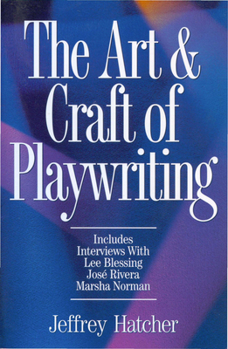The Art & Craft of Playwriting
Select Format
Select Condition 
Book Overview
Award-winning playwright Jeffrey Hatcher knows-- and shares with energy and smart advice-- the nuts and bolts of writing successful stage scripts.
Format:Paperback
Language:English
ISBN:1884910467
ISBN13:9781884910463
Release Date:March 2000
Publisher:Penguin Publishing Group
Length:224 Pages
Weight:0.80 lbs.
Dimensions:0.7" x 6.0" x 8.9"














